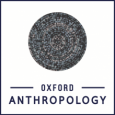Medical Anthropology
Photo credit: Lys Alcayna-Stevens
The MSc (one-year) and MPhil (two-year) courses in Medical Anthropology at Oxford offer students an unparalleled opportunity to engage with some of the most vital issues at the intersection of health, medicine, and society. These programmes provide rigorous training in contemporary anthropological theory and methods, while encouraging students to think critically about many of the pressing global challenges that define contemporary life.
Medical Anthropology at Oxford is distinctive for its breadth and depth. Both degrees examine cutting-edge themes and debates within medical, social, and biological anthropology, showing how these fields come together to transform the discipline of anthropology itself. Students explore health and disease across multiple scales, from global political economy and health systems to therapeutic practices, embodied experiences, and microbial and evolutionary and environmental processes. Throughout, students are challenged to think critically about how ethnographic approaches can illuminate urgent societal questions and help us to think about contemporary problems in new ways.
A core strength of the programme is its commitment to ethical reflection and political engagement. Students consider the roles anthropologists have played in responding to epidemics, public health crises, and humanitarian emergencies, while also examining the enduring legacies of colonialism, the implications of emerging technologies, and the complex and shifting ecological entanglements of human and non-human life.
An introduction from Course Director Dr Lys Alcayna-Stevens
https://www.youtube-nocookie.com/embed/-8B-heIt2e8?si=NSH_-0S8_mA5GIO0
Course structure
A structured programme of lectures, classes, and tutorials runs from October to June in the first year, common to both the MSc and the MPhil, followed by individual study and the writing of a dissertation over the summer (for the MSc), or thesis preparation over the summer and writing in the second year (for the MPhil). In addition to the core Medical Anthropology courses and the Medical Anthropology Seminar, students also attend lectures on theories and methods in social anthropology, enabling them to situate their studies within broader contemporary trends in anthropological work.
Each student is assigned a supervisor for the duration of their degree to provide guidance on their studies. All students also participate in tutorials and/or classes with members of the core Medical Anthropology teaching team, encouraging them to engage with current research across different areas of expertise.
Throughout their studies, students will be taught to situate illness, care, and wellbeing within broader political, economic, historical, and ecological contexts. The programme critically examines how global structures, such as colonialism, capitalism, racism, and international health regimes, produce and sustain patterns of inequality and suffering. Students explore how bodies are shaped by and respond to these forces, developing a keen awareness of how medical knowledge, cultural values, and power relations are lived and contested through embodied experience.
Drawing on interpretive, biosocial, critical, and phenomenological frameworks, students investigate how different societies conceptualize and respond to health and illness, and how healing practices are embedded in social and environmental worlds. Topics such as toxic infrastructures, chronic illness, reproductive justice, microbiomes, and climate change invite reflection on the co-production of disease and wellbeing across different scales. Throughout, students learn to analyze health not only as a biological state but as a complex, relational, socioeconomic, and political phenomenon that unfolds across bodies, landscapes, institutions, and global systems.
Teaching is grounded in close engagement with ethnographic and scientific texts, collaborative discussion, and hands-on methodological training. Students gain practical experience in a range of research methods, while cultivating reflexivity and ethical awareness. Through courses that engage with current events, they also learn to apply anthropological theory to pressing contemporary issues. In doing so, the programme equips students to think critically, ethically, and expansively about health in the world today.
Students also choose from a wide range of optional courses offered within the School of Anthropology and Museum Ethnography. These include options taught by members of the Medical Anthropology teaching team, such as evolutionary medicine, political ecology, and mental health; courses with specific geographical focuses, such as Africa, South America, South Asia, Japan, and the Middle East; and a variety of courses on contemporary anthropological themes. The list of available options varies from year to year.
Both degrees involve an independent research project. MSc students complete a 10,000 word dissertation (submitted in late August). MPhil students 30,000 word thesis (submitted by June of the second year).
Current Students and Alumnae
Medical Anthropology DPhil Research




